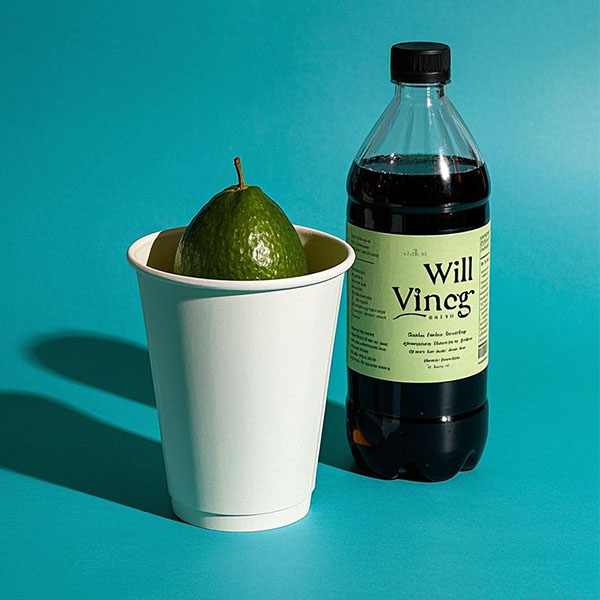The answer is yes: vinegar can potentially seep through a paper cup. While paper cups appear sturdy and capable of holding liquids, the acidic nature of vinegar may, over time, affect the structure of the paper cup, leading to leakage or weakening of the material. This is especially true when vinegar is highly concentrated or if it is in contact with the paper cup for extended periods. This is why it is generally recommended to use other materials, like plastic, glass, or ceramic, to hold acidic liquids.

Paper cups are designed to hold liquids primarily thanks to their inner waterproof coating, usually made of polyethylene (PE) or similar plastics, which helps prevent leakage. However, acidic liquids (such as vinegar or lemon juice) can gradually erode this coating over time, causing liquids to seep through. The acidic components of vinegar can speed up this process, especially with prolonged exposure.
Therefore, if you use a paper cup to hold vinegar or similar liquids, especially for a long period, the paper cup may begin to weaken, and you could eventually experience leakage. This is one of the reasons why many manufacturers opt for plastic or glass containers when packaging acidic liquids, as these materials can better withstand acidic substances.
In addition to the corrosive effect of acids on the paper cup's coating, the cup's overall stability when holding liquid is also important. Paper is not as structurally robust as glass or plastic, and prolonged contact with liquids, especially corrosive ones, can cause the paper cup to deform. This not only affects convenience but could lead to unexpected leaks, negatively impacting the user experience.
With increasing demand for convenience and sustainability, the production of paper cups and containers has become a critical part of the foodservice industry. In the manufacturing process, advanced paper cup/bowl machines play an essential role. Modern paper cup machines are not only capable of efficiently producing various sizes and types of cups but can also minimize leakage problems through precise temperature control and coating techniques.
For instance, some machines utilize dual-layer coating technology, which significantly improves the water-resistant properties of paper cups, making them more capable of handling liquids and extending their lifespan and stability. Furthermore, modern paper cup machines can be optimized for different types of liquids, ensuring that the cups meet various market demands, whether for regular beverages or containers that need to be resistant to acids.
While vinegar and other acidic liquids can affect paper cups to some extent, this doesn't mean paper cups are completely unsuitable for everyday use. For short-term usage and with liquids of lower acidity, paper cups remain a convenient and eco-friendly option. For foodservice businesses, understanding how different liquids interact with packaging materials and selecting appropriate containers, combined with modern manufacturing technologies, can ensure both product quality and customer satisfaction. For consumers, choosing the right container for holding vinegar or other acidic liquids will help avoid unnecessary issues.
GET A QUOTE